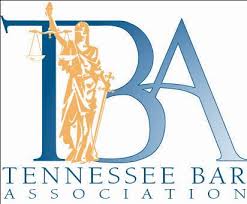
“Probate” is a term that covers the legal process through which the orderly administration of a decedent’s estate, the satisfaction of the decedent’s outstanding debts, and the distribution of the remaining assets to the heirs or beneficiaries are carried out. This process is sometimes referred to as simply “Estate Administration.”
In Tennessee, a decedent’s estate is most often required to be “probated” regardless of whether he/she died testate or intestate (a “testate” estate exists when the decedent left a validly executed will; an “intestate” estate exists when the decedent left no will, or the will left by the decedent is invalidly executed). The validity of a will depends upon a number of factors, one of which is whether or not the preparer of the will adequately followed the statutory requirements.
In a testate estate, once the will is admitted to probate, the court will empower the named “executor/executrix.” Typically, the court will appoint as executor/executrix the person named by the decedent in the will. On some occasions, the court will appoint someone other than the executor/executrix named in the will usually because the named person is unable to act or chooses not to as executor/executrix (on theses occasions an attorney may be appointed as Administrator C.T.A.).
In an intestate estate, where the decedent did not leave any will or the will was deemed invalid for some reason, the court will appoint an “administrator or administratrix.” Using statutory guidelines, the court will typically appoint the closest relative if the decedent to serve as administrator/administratrix, or a third party where a dispute exists among the survivors.
Regardless of whether the estate is testate or intestate, the probate process function is very similar; however, there are some major limitations on the scope and authority of a mere administrator. The administrator deals on with the personal estate, excluding real property. The executor or administrator, with the aid on his/her attorney, is responsible for, among other things,
- Giving notice of decedent’s death to all known creditors and making sure that legitimate debts are paid;
- Giving notice to all heirs and beneficiaries that the estate is subject to probate,
- Collecting, safe-guarding, and distributing the probate assets;
- Preparing and filing reports and inventories with the court;
- Preparing and filing the necessary tax returns; and preparing and filing the necessary TennCare forms.
The complexity of the probate process depends upon the size of the estate, the nature of the assets, the number of heirs and beneficiaries, among other things.
Having an experienced attorney to assist in these matters allows for the family members to concentrate on what’s important – the needs of their loved ones.
Contact the attorneys at the Law Office of Kelley Hinsley today to schedule a consultation.


